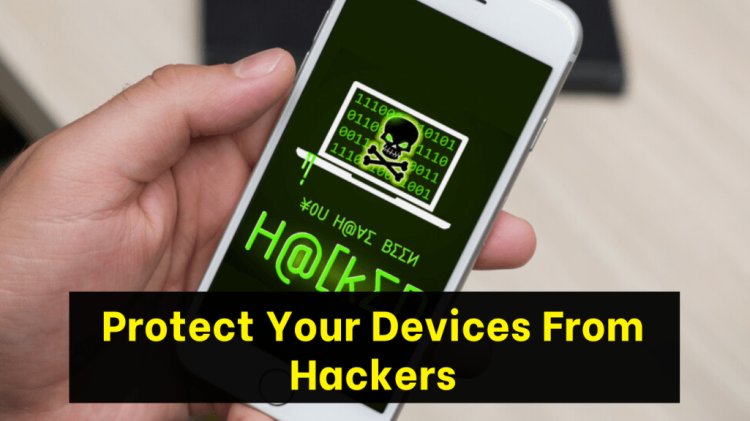How To Protect Your Devices From Hackers - Cyber Security
hackers are actually people who break into someone else's device by bypassing security measures. This can result in identity theft, theft of information and money, as well as damage to your device itself.

Introduction
If you’re like most people, your first thought when you hear the word “hack” is that it refers to someone who hacks into a computer network or website. But hackers are actually people who break into someone else's device by bypassing security measures. This can result in identity theft, theft of information and money, as well as damage to your device itself.
Fortunately, there are several things that you can do to protect yourself from hackers and prevent them from accessing your devices:
First of all, keep your devices updated.
You should keep your devices updated. Updates are a way to protect your devices from hackers and malware. If you don't update, then hackers can get into your device and do things like steal personal information or even take over the entire system.
To update a device, go to its settings menu and click on "Software Updates." If there is no software update available for the device yet (and if you're using Windows), then this will take care of it for you!
Second, use a password manager.
The second step to protect your devices is to use a password manager. A password manager generates and stores passwords for you, so that you don’t have to remember them all.
This is important because hackers can steal your passwords by hacking into the website or service where they were stored (e.g., Gmail). The best way to prevent this is by using different passwords for each service where possible—don't use the same one across multiple websites/apps/services, even if they're owned by the same company! If someone gets access through one account and then uses it on another site, there's no way for them to get back at their intended target without risking exposure themselves (and possibly getting caught).
Another benefit of using strong passwords is that it makes logging in more difficult: when entering new ones every few months or weeks instead of days or weeks between logins—as well as avoiding reused phrases like "password"/"123456"/"godaddy/google"...and so forth—you'll find yourself having more trouble remembering what those codes actually mean than before! This can help keep hackers out of your life; plus since most people tend not take good care of their own personal information anyway...
Third, block ad trackers.
Third, block ad trackers.
Advertising is the main reason why most webpages are loaded with ads. As an internet user, you have probably seen many ads on your favorite sites and apps. They’re everywhere! In fact, even if you don’t see any ads anymore (or at least not as many), they still exist in different forms—and that includes tracking cookies and other technologies used for advertising purposes.
To protect yourself from hackers who want to steal your personal data or access your accounts on social media platforms such as Facebook or Instagram: 1) turn off all tracking features within these apps; 2) delete any existing cookies associated with those sites; 3) clear out browser history so no one can find anything about what websites were visited before turning everything back on again after deleting all data associated with them
Fourth, turn on two-factor authentication.
Fourth, turn on two-factor authentication.
This is a way to protect your account by requiring a second step when logging in. Two-factor authentication which is commonly used by many platfrom like google, facebook etc. provides an extra layer of security to your account by requiring you to enter a code from your phone. This means if someone hacks into your computer or phones and has access to your information, they won't have much luck getting into the accounts themselves because they won't have any codes for them yet—they'll still need more than one password!
Keep your devices secure with these simple tips
-
Keep your devices updated with the latest version of software.
-
Use a password manager to store all your passwords and other sensitive information. You should also use one if you have multiple accounts, or if you're using an online service that requires a login (like Gmail).
-
Block ad trackers in your browser settings; this will help prevent hackers from tracking what sites you visit when they try to hijack them through phishing scams or malware infection.
-
Turn on two-factor authentication for any account that supports it—it makes it harder for someone else to access your account by requiring them to enter both their username and password in addition to answering text messages sent from the website itself (or even just tapping on links inside emails).
Conclusion
We hope these tips have helped you keep your devices secure from hackers. You can also read our other blog posts for more information on how to stay safe online and what to do if a hacker does breach your security.
